The Land of Smiles, Müpa, 1 February 2019, 7 pm
We caught the incredibly nice opera singer, Karine Babajanyan, for an interview about Ferenc Lehár’s operetta The Land of Smiles, where she sings Lisa’s role. The piece had its premiere in Shanghai at fall 2018. This monumental coproduction of Müpa and the Shanghai Opera House, directed by Csaba Káel, has been a huge success; it is going to be premiered in Budapest on February 1, 2019.
Do you remember the moment when you realized that you would like to become an opera singer?
Yes – I was in our opera house with my mother with a family season ticket when I was thirteen. It was a children performance of Leoncavallo’s Pagliacci. I got very excited about Colombina’s character, and since then, I am in love with opera. I was learning classical music and played the piano: Mozart, Haydn, Bach. But singing, no. The wish to become an opera singer came through this experience, but I didn’t tell anybody, it remained my secret. I continued my studies in the music conservatory as a piano player. But destiny made its way. I was practicing too much, and I had problems with my hand, and wasn’t really able to play. This was two months before the exams. Somebody advised my mother that I should try something else, not to lose a year, so I applied for chorus conducting. I had a crash master course with a much known conductor, and I was accepted to chorus conducting. When we conducted, we also had to sing. One time I had to sing Orpheus and Eurydice, and I sang it so nicely, that my teacher was fascinated about how beautiful my voice is. And I was thinking: Yes, finally somebody noticed it! My speaking voice is very low, so nobody thought about me having a soprano singing voice. So this professor of mine discovered my voice, and he helped me to go to the vocal department from the second year. This is how I ended up being a soprano!
Now, let’s go to Shanghai. How does a Hungarian operetta work in the Chinese culture?
This was one of the most perfect experiences in my life. I have many so nice experiences as on opera singer, I see different cultures, different audiences. And it makes me very happy to have all these opportunities. But this was one of the best, because it was like a fairy tale. In the piece you are in the time of the Austro-Hungarian Monarchy. And the music is also Hungarian, and off course there is the Vienna waltz, but also Chinese traditional music. And there is the love story of Lisa and Sou-Chong. And this was like a real story in it right place. I didn’t have to find any extra inspiration. The inspiration was there. Most of the times, I am doing some research and try to find inspiration for a role, for Aida or Madame Butterfly. So, for Lisa’s role I also had an excellent coach from Vienna for the perfection of my German. But in Shanghai I really entered the realm of a fairy tale. It was perfect.
This sounds like the piece going home…
Yes! And now in Budapest I guess, I hope, it will be the second time of arriving home. I am so grateful for this opportunity, to Mr. Csaba Káel and the whole company, to make this happen, to make the story real.
Are the set and the costume design more like European or mixed?
Mixed, just like as in the story. The first act is in Vienna, you can see Belvedere, beautiful ballrooms. The second act is in China, also with gorgeous decoration. The lightning is fantastic, too, great work from the whole team.
How come you ended up blonde?
I was shocked when I saw the blond wig for the first time. Even the conductor, Stefan Soltesz said that, you can’t wear that, you should cancel, it’s not you. Everybody was shocked. But, in the end, it worked; it suits really the character of Lisa. And because other casts were mostly dark-haired, it really worked, it was a nice contrast. She was standing out.
Did you get any unusual compliment there that you wouldn’t get in Europe?
The Chinese audience loved the performance, it was bombastic success. But many things were unusual; it’s a very different culture. Even the way they rehearse. Since then I see Asian people on the street in a different way. I got so many friends there; we worked with a lot of Chinese artists. They are closed at the beginning, but when they decide to be friends, when they open up, they are really nice people, helpful, kind. You can feel the deepness of this old culture.

I don’t like myself the what is your favorite questions, but still, do you have a favorite role?
I noticed that I give different answers for this question in different interviews, so I realized, that when I am preparing for a role, I am in love with that role. Now I am preparing Die Gezeichneten from Franz Schreker. It’s very new for me because it’s not classical. It has so many colors, new phrases, harmonies. So I’m really in love with the role of Carlotta, who is an artist, a painter with an interesting personality.
You go really deep in the characters.
Yes, I am reading some writings of Austrian authors from that time to get inspiration. As a singer you sing a lot of Aidas, a lot of Madame Butterflys, a lot of Ariadne auf Naxoses, and every time you need some inspiration. We need time; we need to fill it with emotions. It takes a lot of energy. Sometimes you just want to walk in the nature, in a meditative state. You should find the perfect doses of everything.
What do you like to do when you are not singing or preparing for singing?
I love to go home in Armenia to see my old home, my parents, friends, the streets where I grew up, eat the local food. Do nothing, just be where your roots are. I miss it of course. I like Europe, but home is home. I go there every time I can. But this time my parents will come to see me in Lisa’s role in Budapest. My mother is a big fan of operetta, and Ferenc Lehár was very well-known in the Soviet Union and Armenia. She can sing all the pieces, but in Russian. And my daughter is also coming from Vienna.
Is there anything you would like to say to the Hungarian audience?
Oh, I love the Hungarian audience. Very professional, very warm, and the Hungarian applause is unique, and I never hear it in other countries – crescendo, diminuendo, crescendo, diminuendo…
Come and be in a fairy tale for two hours!
Interview and translation: Enikő Nagy



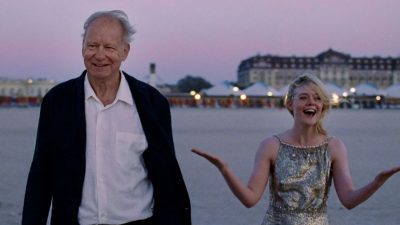

















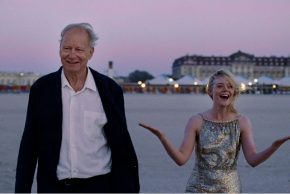
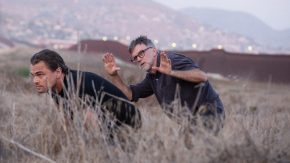
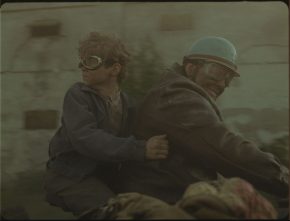
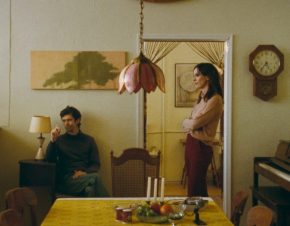
Comments